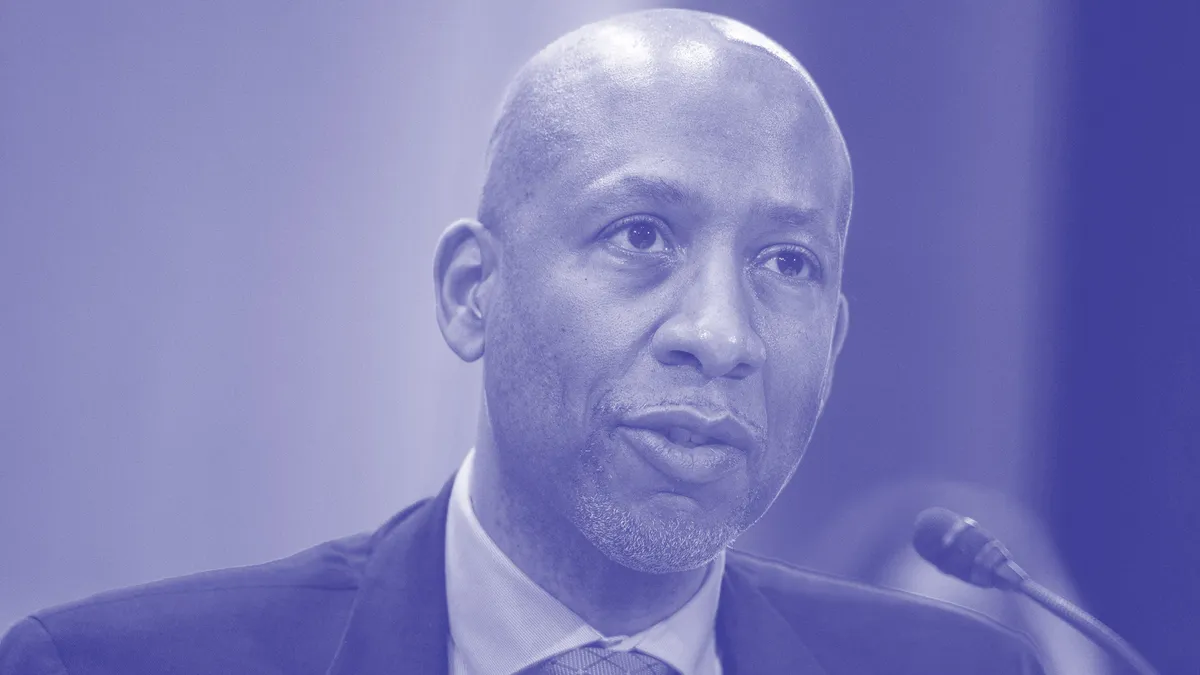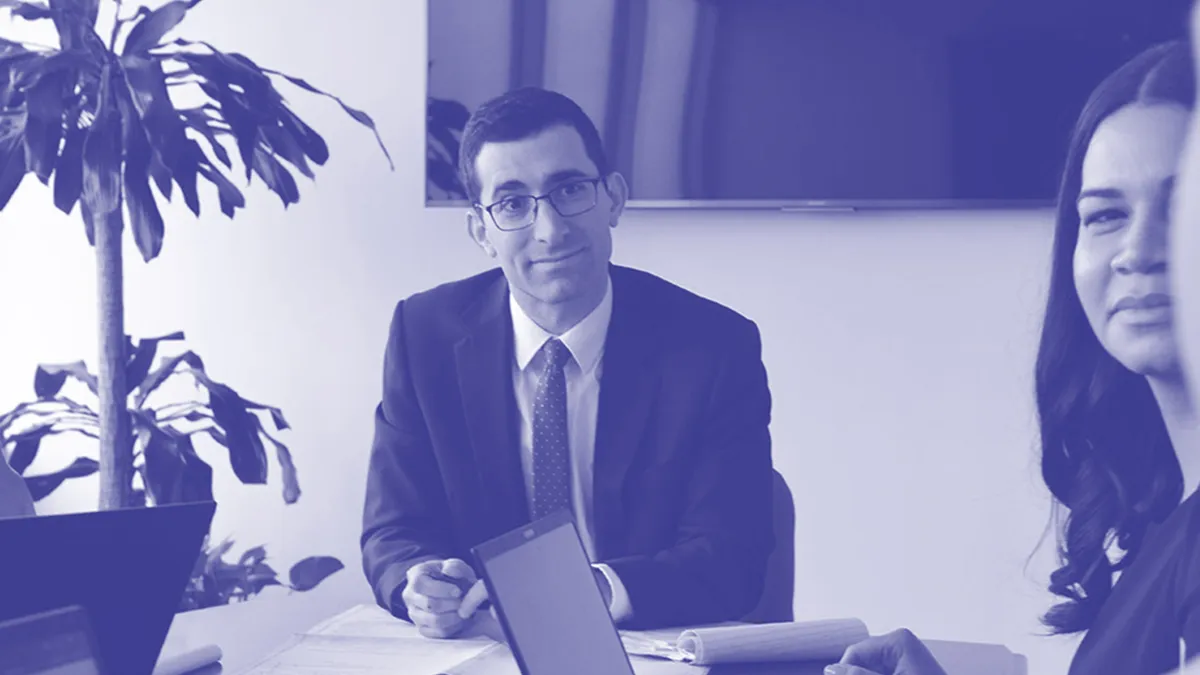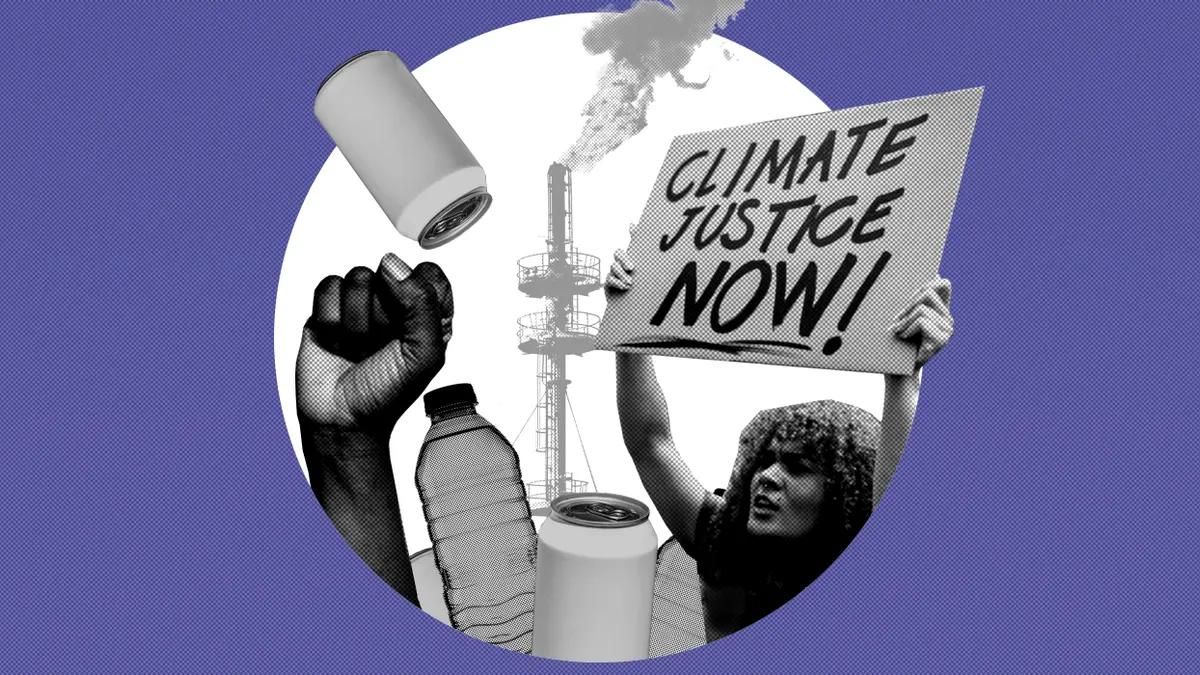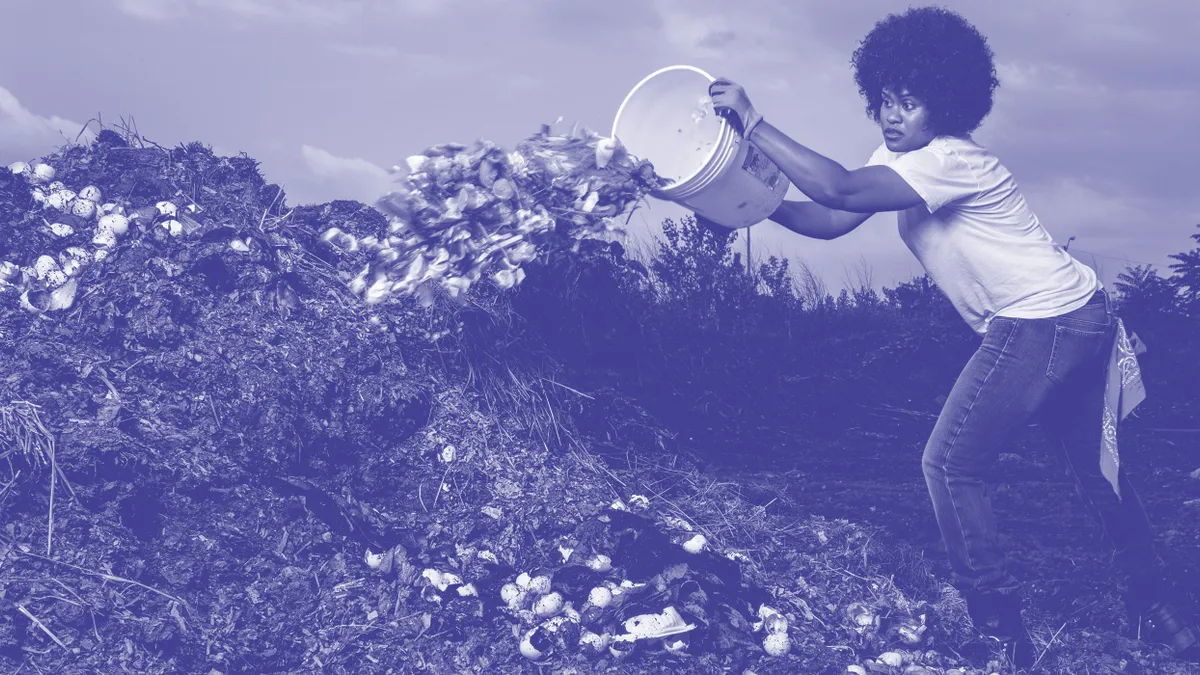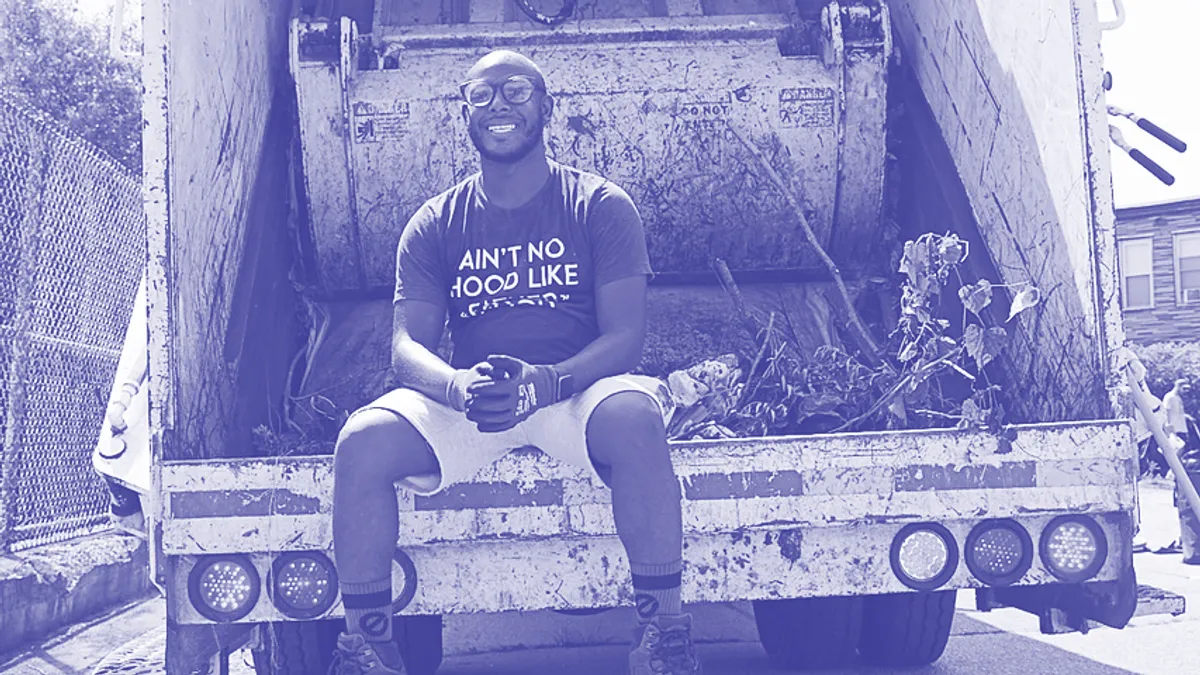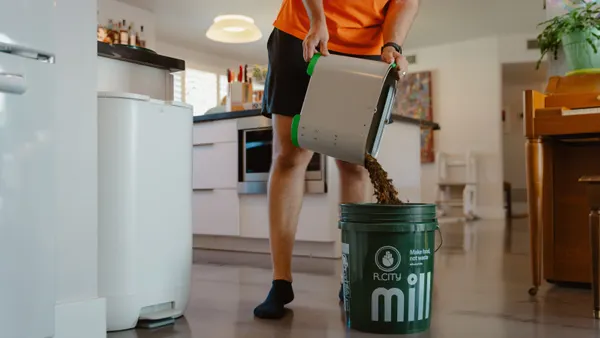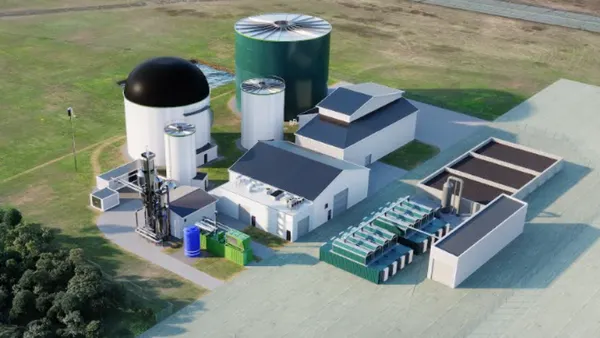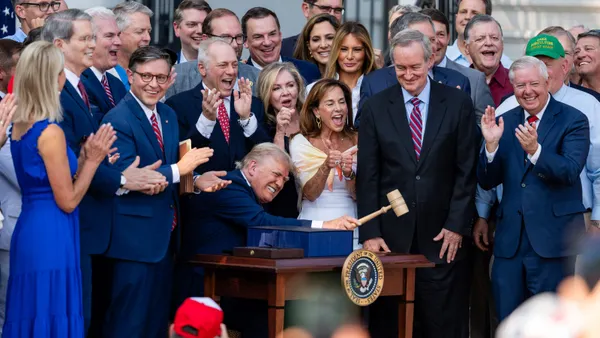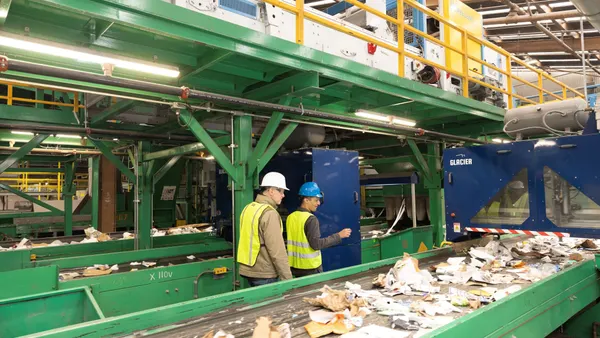As New York City plans big changes to how it manages organic waste, environmental justice activists want to ensure equitable distribution of new services such as curbside collection.
Mayor Eric Adams recently announced a citywide curbside organics collection program would be available by the end of 2024, following a pilot program in Queens. The city also rolled out more than 200 orange “smart bins” for organics on street corners throughout the city. Meanwhile, the New York City Council is mulling the Zero Waste Act, a package of bills that would mandate universal composting and codify the city’s goal of zero waste by 2030.
Lonnie Portis, environmental policy and advocacy coordinator in WE ACT for Environmental Justice’s New York City region, talked with Waste Dive about his organization’s zero waste advocacy and why he sees community organizing as a key facet of successful long-term waste planning. He also discussed how more people can get involved in advocacy, and where waste companies can fit into community conversations.
This interview has been edited for length and clarity.
How do recent developments in New York City, like the citywide curbside composting and new smart bin system, fit into WE ACT’s overall composting and zero waste work?
We have a climate justice working group, and a vision the group had was that they really wanted to talk a lot about waste [and zero waste]. We're gonna be focusing on compost a lot because of all the conversations happening.
When [New York City’s sanitation department] and the mayor’s office decided to offer the [smart bin] pilot program, I thought nothing was going to happen with it. It’s very common to see some of these pilot type programs happen in Whiter, more affluent areas. But then we woke up one day to a ton of orange bins everywhere in northern Manhattan. Part of that initiative was to make sure that neighborhoods that historically have been left out of those kinds of pilot programs — left out of environmental justice and climate investment into their community — got it first. That’s good to see.
It took everyone a little by surprise when the mayor made the curbside composting announcement. So far, it sounds great. It's voluntary, and you don't have to worry about needing a landlord signing off on it. You don’t have to convince your building owner to do that. You just need someone in the building who is willing to manage that compost bin. That’s also a great step forward.
WE ACT has been advocating for long-term zero waste policies around organics recycling. What’s included in your policy agenda?
One of the main focal points for WE ACT is pushing for curbside composting and pickup and making it mandatory, [which is part of the Zero Waste Act bill package]. We also want to make sure that there is still going to be [long-term] funding when curbside pickup services expand, because having a strong base of funding is how you keep that program going, and protect it and grow it past just one administration.
We want to make sure our members are very well educated because [northern] Manhattan won't actually get the universal curbside pickup until next fall. Since it’s a voluntary thing, how do we build leaders in the space, people who are willing to handle [composting] in their buildings or on their block? We need people who can help show that this program should be mandatory because people want it and want it to work.
What we do here in New York City really impacts the entire country. Zero waste has an environmental justice aspect to it because … those places where the incinerators or landfills are sited are also communities of color and low-income communities. We’re seeing how a relatively small number of people or population, if they were to change their behaviors and habits, can make a global impact. And if the city were to provide that infrastructure to help change the systematic and structural aspects, how big of an impact could we have?
WE ACT advocates for zero waste policies throughout the city, but your work is mainly in northern Manhattan. What is important to people in those neighborhoods when it comes to composting and zero waste, and why is it important to focus so locally?
We need community organizations to help make an impact. Citywide they’ll make sure material is in multiple languages, and that language access is amazing. But there's also a cultural component, right? We're talking about abuelas and aunties and tias who cook all the time, who have never composted and never thought about composting even though they cook a lot with fresh fruits and vegetables. Sometimes this is brand new to a lot of people in our community, particularly in northern Manhattan.
A lot of times knowledge of composting is usually centered on more affluent and Whiter spaces, on college graduates. But not everyone goes into those spaces, so it's really important to understand on a community level where the resources are for you. This is a great opportunity to meet people where they’re at, but also for us to have community members engage with policy aspects and the structural aspect. As people of color or low income individuals, just because we are in certain neighborhoods doesn't mean we don't want to compost.
Our [zero waste] subcommittee is really interested in this. We've got all different ages, ethnic backgrounds, economic backgrounds, expertise. Some are very much experts in waste, and we have people who know really nothing, and some who are really great community organizers who know how to get people together and rally. We also have several members who live in public housing and are concerned with what waste should look like there.
How is WE ACT engaged in the wider New York City zero waste discussion, particularly around environmental justice issues?
We've been doing a lot of work with the zero waste [bill package] that was introduced last year. It’s a challenge to get people to really engage in policy work because people feel intimidated by the process. They don't feel like they're experts. So we try to find creative ways to engage them, like having people take photos of garbage or food waste and send a quick tweet saying we need to pass the zero waste bill package. If people don't show they care, it gives permission for officials not to care.
One step further, and even a little more difficult, is budget advocacy. Making sure there’s money to actually do the work is very challenging. We’re trying to get more letters from kids, community members to explain why zero waste is so important to them.
We've also been talking about infrastructure aspects like organics micro-processing and microhaulers. Zero waste creates a lot of economic opportunity and is community based in a hyperlocal ecosystem. Microhaulers could be an individual with a bike and a cart, it could be a small group of people with a small truck.
We’ve had [larger waste haulers] reach out to us to connect about their environmental work, and we would definitely welcome more of those discussions about the facilities they have in certain neighborhoods or what they can do to be a better partner or community member. I think there's a lot [of people] in the environmental justice space who are cautious of private entities and larger businesses just because of historical environmental justice issues. But we're all in the space together, right? How do we all make this work together?








